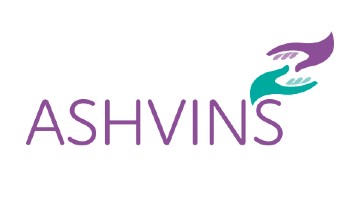ASHVINS: Managing Depression in Cancer Patients in India
End Date
Project location
- India

Background
Depression has a prevalence of around 30% in patients with cancer. Research shows that managing comorbid depression can be beneficial for overall care of cancer. But in India, there is no systematic identification or treatment of comorbid depression in such cases. Even in tertiary care centres, depression is managed only if patients express florid symptoms, and routine screening is not done. The effect of not treating depression both on the health of the individual and the economic impact on the health system can be quite significant as it reduces treatment adherence, increases emergency visits and hospital admissions, and prolongs illness.
Monitoring mood fluctuations and linking them with stressors, both those related to cancer or those related to psychosocial issues, are key components of integrated cancer care. Strategies to increase awareness about one’s mental health status through self-monitoring and facilitate contact with mental health professionals using an algorithm-based referral system that tracks mood fluctuations in real time and automatically warns clinicians about the need for follow-up can be particularly relevant for ensuring better control of mood symptoms. Additionally, behavioural activation (BA) is effective in reducing depression related to cancer.
Aims
The overall goal of this project is to develop and test a technology-enabled mental health care delivery platform, with or without BA, for patients in India with breast, cervix, ovarian, lung, prostrate, colon, head, and neck cancers and comorbid depression, and to assess the effectiveness and cost-effectiveness of this platform in clinical practice.
These overall goals will be accomplished by addressing the following specific aims:
- Conduct formative research to develop a suitable technology enabled mental health services delivery platform, and behavioural activation modules
- Conduct a pilot RCT to gather preliminary data for a hybrid trial
- Conduct a hybrid effectiveness-implementation trial to assess effectiveness of the intervention
Conduct mixed methods process evaluation to understand barriers and facilitators for large scale implementation of the intervention and cost-effectiveness evaluation

Research Methodology
The total study duration is for five years. We will first conduct formative research to develop a suitable technology enabled mental health services delivery platform, and behavioural activation modules followed by a pilot RCT to gather preliminary data for a hybrid trial; and a hybrid effectiveness-implementation trial to assess effectiveness of the intervention. Through the 3-arm parallel design hybrid effectiveness-implementation RCT, we propose to explore the effectiveness and cost-effectiveness of a technology-enabled platform with/without behavioural activation to manage depression in patients with breast, cervix, ovarian, lung, prostrate, colon, head, and neck cancers across three clinical centres in India. Patients in Arm1 will receive usual care. Patients in Arm 2 will monitor depression symptoms using a self-monitoring application, and mental health professionals will optimize care using an electronic decision support system (EDSS). Patients in Arm 3 will receive the Arm 2 intervention and additionally will get BA training. Patients will be randomly allocated in a 1:1:1 ratio using a computer-generated allocation sequence, stratified by site and cancer type to receive usual care (Arm1), self-monitoring (Arm2), and self-monitoring with BA (Arm3). An independent statistician will conduct the randomization. This is an open label design. Patients and clinicians will not be blinded to allocation to the intervention or control arm. The researchers and statistician involved in analyses will be blinded.
Newly diagnosed adult patients suffering from breast, cervix, ovarian, lung, prostrate, colon, head, and neck cancer with co-morbid depression (a score of ≥10 on the PHQ9 and/or GAD7 or scoring ≥2 on the suicide/self-harm related question on PHQ9) will be identified from three hospitals by trained interviewers and randomized into 3 arms. 208 patients aged ≥18 years and suffering from cancers mentioned above with co-morbid depression will be recruited in each of the three arms from three clinical sites. One is a premier tertiary care hospital of India (PGIMER, Chandigarh in North India) that attracts patients from all over the country, the other is a premier medical school in India and caters to local, national and international population (AIIMS, New Delhi in North India) and another is a regional medical institute (VIMS, Karnataka in South India) catering to local needs.
Current Status
We have initiated staff recruitment and received ethics and regulatory approvals from at all 3 sites. Formative phase in the AIIMS, New Delhi site has commenced where we have developed and are in the process of validating the self-monitoring applications, EDSS for clinicians; finalized the questionnaires; developed the behavioural activation modules; and are in the process of delivering it to patients.


